What is comorbidity?
Comorbidity is the medical word used when a person experiences more than one physical or mental health disorder (including substance use) at the same time. Sometimes people have a combination of physical and mental health conditions, or they might be experiencing two separate mental health problems.
Comorbidity can occur in different ways, including:
- A mental health condition could lead to a substance use disorder (e.g., alcohol).
- A substance use problem may lead to a mental health condition (e.g., depression/anxiety).
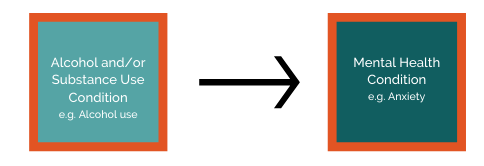
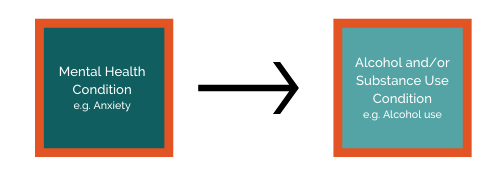
Mental health may impact a person’s social and educational levels, which in turn results in the condition becoming worse.
Substance abuse can also impact a person’s social and educational levels, which leads to mental health disorders.
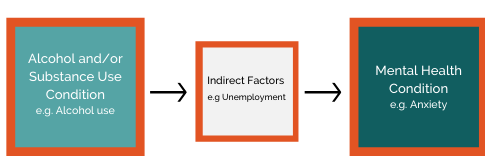
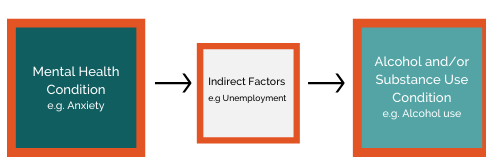
Risk factors (e.g., social relationships, home life, isolation, social disadvantage) can trigger either a mental health or substance abuse condition, making the individual more vulnerable to the negative impacts of one or both.
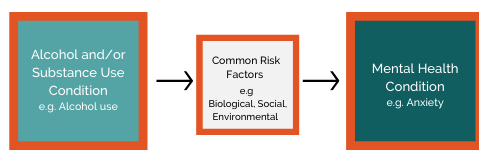
Comorbidity can cause complex issues. Although there are a number of reasons why a person may have two or more conditions at the same time, the effects of each condition often influence one another. If comorbidity is not dealt with, the outcome of each condition can become worse. For example, Spencer experiences anxiety and is having racing thoughts. He can’t concentrate and always feels on edge. To try and calm himself and relieve some of the tension, he starts drinking alcohol during the day. Spencer feels more relaxed after a few drinks, however once the alcohol wears off, he starts to notice that his anxiety is getting worse. Now he is drinking even more to manage his anxiety. Although Spencer is using alcohol as a way to help himself through self-medication, it ends up making both his alcohol use and anxiety worse. The more this cycle is allowed to continue, the harder it is for Spencer to break his dependency.
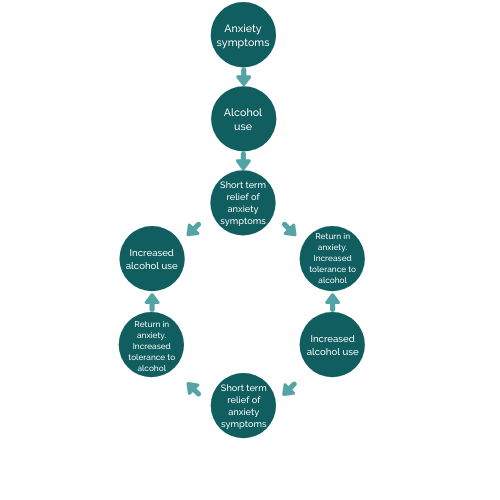
Everyone is different - some people can be at risk of mental health conditions and substance abuse conditions due to genetic factors (e.g., family history) and some may be responding to experiences they find themselves in during their daily lives. Traumatic experiences from the past can also have an effect.
Many Australians are facing symptoms of comorbidity every day. If you or a friend are struggling with mental health issues or drug and alcohol use issues, it’s important to know that help is available.
How can I deal with comorbidity?
There are effective ways to deal with comorbidity, but it’s important to take action early on and reach out to people around you. Getting help from a doctor is the fastest and best way to reduce the impact on your daily life. We encourage people who feel they are experiencing comorbidity to consider the following:
- Connect with friends and family.
- Acknowledge that comorbidity is an issue for you and seek professional services early if you are having difficulties.
Where can I get help?
In an emergency, dial Triple Zero (000).
You can also contact your local GP, or one of the following:
Beyond Blue: 1300 22 4636
Find a service: eCliPSE Service Locator
Kids Helpline: 1800 55 1800
Lifeline: 13 11 14
National Alcohol and Other Drug Hotline: 1800 250 015